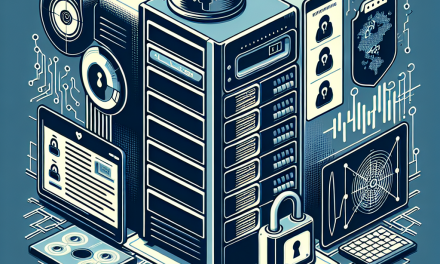In today’s interconnected environments, ensuring the integrity of logs generated by Linux servers is paramount for security, compliance, and effective troubleshooting. Logs serve as the backbone of incident response, forensic investigations, and operational insights. However, if these logs can be tampered with, their utility diminishes significantly. This article explores how to ensure remote log integrity in Linux server monitoring.
Understanding Log Integrity
Log integrity refers to the assurance that log data has not been altered, deleted, or tampered with in any way. Maintaining the integrity of logs is crucial for:
- Security Audits: Logs are often scrutinized during audits; any sign of tampering can raise red flags.
- Incident Response: In the event of a breach, unaltered logs can be invaluable for understanding the timeline and extent of the incident.
- Compliance Regulations: Many industries are governed by regulations that mandate strict log management practices.
Methods to Ensure Log Integrity
1. Use Cryptographic Hash Functions
Creating a cryptographic hash of log files can be an effective way to ensure their integrity. You can generate a hash value after each log entry is recorded, making it easy to verify against future hash calculations.
Implementation Steps:
- Use tools such as
sha256sumormd5sumto create hashes. - Store hash values securely, ideally in a separate location.
2. Implement Centralized Logging
Centralized logging solutions like the Elastic Stack (ELK), Graylog, or Splunk can help secure logs from individual servers by:
- Aggregating logs to a central server.
- Employing encryption in transit and at rest.
- Providing mechanisms to verify and monitor log integrity.
3. Make Use of Syslog Security Features
Linux servers often use the Syslog protocol for log management. By utilizing enhancements such as Syslog-ng or rsyslog, you can encrypt logs in transit, ensuring that they are not easily intercepted or modified during transmission.
Tips for Configuration:
- Enable TLS encryption in your Syslog configuration.
- Configure remote logging to avoid local log tampering.
4. Utilize File Integrity Monitoring (FIM) Tools
FIM tools help monitor changes to log files by notifying administrators of unexpected modifications. Popular tools include AIDE (Advanced Intrusion Detection Environment) and Samhain.
- Regularly scan and compare log files against trusted versions.
- Alert on unauthorized changes, deletions, or creations.
5. Audit and Retain Logs Appropriately
Regularly audit log access and retention policies to ensure compliance with best practices and regulations. Define clear access controls to limit who can view or modify logs.
6. Use Immutable Storage Solutions
Some modern cloud and storage solutions offer immutable storage configurations, meaning that once data (like logs) is written, it cannot be changed or deleted for a set period. This provides an additional layer of assurance.
7. Employ Logging Daemon Configuration Best Practices
Ensure your logging daemon (like rsyslog or syslog-ng) is properly configured to minimize the risk of log manipulation:
- Restrict permissions on log files.
- Configure logs to be rotated and archived regularly.
- Prevent log tampering by using a secure logging folder with strict access controls.
8. Regular Backups of Logs
Maintain regular backups of your logs in a secure location. This ensures that copies are available if the original logs face integrity risks.
9. Engage in Continuous Monitoring
Implement continuous monitoring solutions to alert you in real time about any suspicious activity. Solutions can leverage AI and machine learning to identify anomalies in log patterns that might indicate tampering.
Conclusion
Ensuring remote log integrity is not a one-time task but an ongoing commitment to security best practices. By implementing a combination of secure logging mechanisms, centralized logging solutions, and continuous monitoring, you can create a robust framework to protect your logs from tampering and maintain the integrity essential for effective Linux server monitoring.
With the increasing significance of logs in security and compliance, investing in their integrity is not just an operational choice but a business imperative. By proactively addressing log integrity, organizations can significantly reduce risks and enhance their overall security posture.
Keep exploring the best practices in Linux server monitoring and share your thoughts with us at WafaTech! We’d love to hear how you maintain log integrity in your environments.





